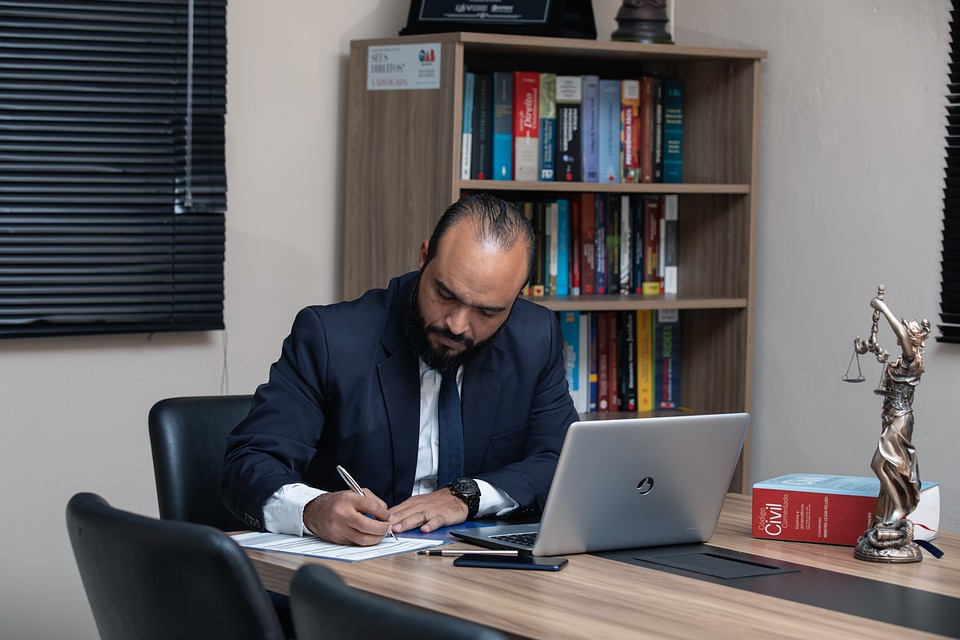accident and injury lawyers

Accident and Injury Lawyers: Understanding Their Role, Services, and Impact on Clients
Accidents, injuries, and other unfortunate incidents are part of life’s unpredictability. When these events occur, they often lead to medical bills, emotional trauma, lost income, and other personal and financial challenges. Accident and injury lawyers, also known as personal injury lawyers, play a critical role in helping victims navigate the complexities of these circumstances. They provide essential legal support for individuals who have suffered harm as a result of accidents, negligence, or intentional wrongdoing by another party. In this comprehensive guide, we will explore the role of accident and injury lawyers, their areas of expertise, the legal processes involved, and how they impact the lives of their clients.
1. Understanding Accident and Injury Law : Accident and injury law, also referred to as tort law, is designed to protect individuals who suffer harm due to another person’s negligence or intentional actions. It allows injured individuals to seek compensation for damages, including medical expenses, lost wages, pain and suffering, and property damage. Accident and injury lawyers specialize in this area of law, representing clients who have been harmed in a variety of situations.
These attorneys can handle cases involvin
Car accidents: Collisions between vehicles are among the most common personal injury claims. Victims often seek compensation from negligent drivers for their injuries and property damage.
Workplace accidents: Injuries that occur in the workplace can result in workers’ compensation claims, though in some cases, a third party may be held liable for the injury.
Medical malpractice: When healthcare providers fail to meet the standard of care, resulting in harm to a patient, victims can file a medical malpractice claim.
Slip and fall accidents: Property owners may be held responsible for injuries that occur on their premises if hazardous conditions are present and not properly addressed.
Defective products: Manufacturers, distributors, and retailers may be held liable if a product they provided causes injury or harm to consumers.
Wrongful death: If an individual dies as a result of another party’s negligence or misconduct, their family members may file a wrongful death lawsuit to seek compensation for their loss.
2. Roles and Responsibilities of Accident and Injury Lawyers : Accident and injury lawyers have several responsibilities when representing clients. Their primary role is to advocate for their client’s rights and ensure they receive fair compensation for their injuries and losses. Key responsibilities include:
Legal advice and consultation: Lawyers provide initial consultations to evaluate the case and determine whether there are grounds for a legal claim. They advise clients on their rights, the legal process, and the potential outcomes of their case.
Investigation of the accident: Lawyers conduct thorough investigations to gather evidence, which may include medical records, police reports, eyewitness testimony, and expert analysis. This is critical for building a strong case.
Negotiation with insurance companies: Most personal injury cases are settled through negotiations with insurance companies. Accident and injury lawyers are skilled negotiators who work to secure a fair settlement for their clients. Insurance companies often try to minimize payouts, so having an experienced lawyer can significantly impact the outcome.
Litigation: If a settlement cannot be reached through negotiation, accident and injury lawyers are prepared to take the case to court. They represent their clients in litigation, presenting evidence and arguing the case before a judge or jury.
Documentation and case management: Lawyers handle all legal documentation, ensuring that all filings are accurate and submitted within legal deadlines. They also manage communication with the opposing party, insurance companies, and other relevant entities.
Client support and communication: Throughout the process, accident and injury lawyers maintain open communication with their clients, providing updates on the case and answering any questions or concerns they may have.
3. How Lawyers Assess and Value a Case : One of the most important functions of an accident and injury lawyer is to assess the value of a case. This involves calculating the total damages the client has suffered as a result of the accident. Damages can be categorized into two main types: economic and non-economic.
Economic damages : These are quantifiable losses such as medical bills, rehabilitation costs, lost wages, and property damage. Lawyers will often consult with medical experts, economists, and other professionals to determine the full extent of these losses, both past and future.
Non-economic damages : These refer to intangible losses such as pain and suffering, emotional distress, and loss of enjoyment of life. Non-economic damages are more subjective and can be challenging to calculate, but experienced lawyers know how to present this type of harm to maximize compensation.
In cases of particularly egregious behavior, accident and injury lawyers may also seek **punitive damages**. These are designed to punish the wrongdoer and deter similar behavior in the future.
4. The Legal Process in Personal Injury Cases : The legal process for a personal injury case typically involves several stages. Accident and injury lawyers guide their clients through each step, ensuring they are informed and supported throughout the process.
Filing a claim: Once the lawyer has gathered the necessary evidence, they will file a claim with the defendant’s insurance company or the at-fault party. This document outlines the client’s injuries and losses and demands compensation.
Negotiation and settlement: Most personal injury claims are resolved through settlement negotiations. The lawyer will negotiate with the insurance company to try and reach a fair agreement without going to court. This can save time and money for both parties.
Filing a lawsuit: If a settlement cannot be reached, the lawyer will file a formal lawsuit in court. This initiates the litigation process, which includes pre-trial motions, discovery, and potentially a trial.
Discovery: During discovery, both parties exchange information and evidence relevant to the case. This may include depositions, interrogatories (written questions), and requests for documents.
Trial: If the case proceeds to trial, the lawyer will present the evidence and argue the case in front of a judge or jury. The outcome of the trial will determine whether the client receives compensation and how much they are awarded.
5. Impact of Accident and Injury Lawyers on Clients : The work of accident and injury lawyers has a profound impact on their clients’ lives. For many individuals, navigating the legal system on their own can be overwhelming, especially when they are dealing with physical and emotional trauma. Lawyers not only provide legal expertise but also offer a sense of relief and assurance that their clients’ interests are being protected.
Financial relief : Clients often face mounting medical bills, lost income, and other financial hardships as a result of their injuries. Accident and injury lawyers work tirelessly to ensure that their clients receive compensation that can alleviate these burdens and cover future expenses.
Emotional support : Lawyers also provide emotional support during what is often a stressful and confusing time. They take on the legal burden so that their clients can focus on healing and recovery.
Advocacy and justice : In cases where the injury was caused by another party’s negligence or wrongdoing, accident and injury lawyers serve as advocates for their clients. They fight to hold the responsible parties accountable and ensure that their clients receive justice.
6. Choosing the Right Accident and Injury Lawyer : Selecting the right lawyer is a critical decision for anyone involved in an accident or injury claim. Not all personal injury lawyers are the same, and choosing the right one can make a significant difference in the outcome of a case. Here are some factors to consider when choosing an accident and injury lawyer:
Experience : Look for a lawyer who specializes in personal injury cases and has extensive experience in handling similar claims. A lawyer with a strong track record is more likely to secure a favorable outcome.
Reputation : Client reviews, testimonials, and professional ratings can provide insight into a lawyer’s reputation. A lawyer with a reputation for success and client satisfaction is more likely to provide high-quality representation.
Communication : Clear and consistent communication is essential. Clients should feel comfortable discussing their case with their lawyer and confident that their lawyer is keeping them informed throughout the process.
Resources : A well-established personal injury law firm will have the resources necessary to thoroughly investigate the case, hire experts, and take the case to trial if needed.
Contingency fee structure : Most personal injury lawyers work on a contingency fee basis, meaning they only get paid if they win the case. This arrangement aligns the lawyer’s interests with the client’s and ensures that the lawyer is motivated to secure the best possible outcome.
7. Conclusion: The Vital Role of Accident and Injury Lawyers Accident and injury lawyers play an indispensable role in the lives of individuals who have been harmed due to accidents or negligence. They provide expert legal representation, fight for their clients’ rights, and help them secure the compensation they need to recover and rebuild their lives. By taking on the complexities of the legal process, accident and injury lawyers allow their clients to focus on healing while ensuring that justice is served.
For anyone involved in an accident or injury, consulting with an experienced personal injury lawyer can make all the difference in achieving a fair and just resolution. Their knowledge, skills, and dedication are vital in helping clients navigate the challenges that come with personal injury claims and ensuring that they receive the compensation and support they deserve.


